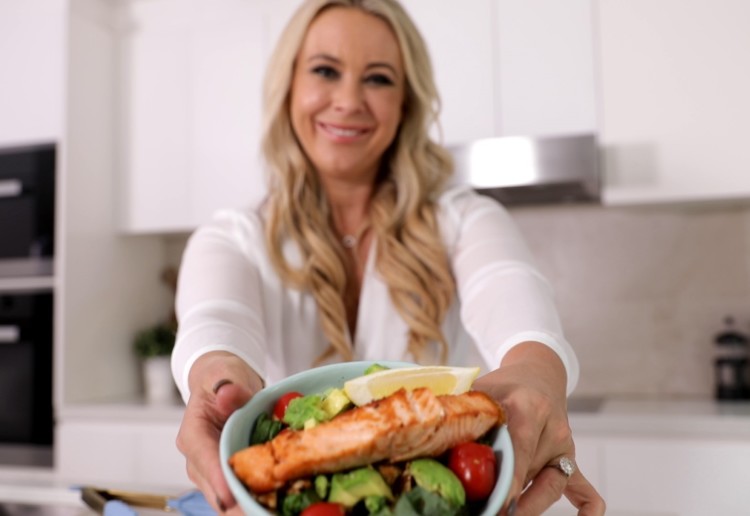If you have not tuned in yourself, chances are you have come across someone in recent weeks who has an opinion on the latest Netflix vegan food special, Game Changers – a documentary detailing the enormous health and environmental benefits associated with a 100% plant based, vegan foods.
Indeed the rapid growth of the vegan food section in supermarkets offering every meat alternative possible from chicken pieces to vegan smoked salmon is indicative of the public’s growing interest in plant based eating and vegan food.
Now this is not a piece debating whether or not you should be eating a plant based diet made up of vegan food. Dietary preferences in my mind are somewhat like the religious preferences we choose – personal, formed for a number of reasons and not open to debate.
Indeed plant based eating offers a number of benefits and in general Australians do need to eat a lot more plant based foods – veges, legumes, nuts & seeds and their health will benefit as a result. But eating 100% vegan foods is a significant decision with a number of nutritional consequences to consider and one that is ultimately up to you to make.
Implications for Long Term Health
Rather what I wanted to discuss was that if eating vegan food is a current priority for you, it is very, very important to know that plant based varieties of specific foods are not the same thing as the non-plant alternatives and this has significant implications for our nutrition and ultimately our health long term.
The first thing to know is that animal based protein – eggs, meat, fish, chicken and dairy food contains high biological value protein – this means it is very similar in structure to proteins in the human body and as such is easily processed and assimilated.
Protein rich foods are also rich sources of a number of key micronutrients – nutrients that are essential for health but needed in relatively small amounts. Calcium, iron and zinc are a few well known of these, while iodine, choline and Vitamin B12 are less well known but also very important.
Now it is not impossible to get these nutrients in a 100% plant based diet with only vegan food BUT it will require some careful food selection, the addition of fortified foods such as nut based milks and even supplementation in some cases.
Some Vegan Food Is A Cause For Concern
Plant based varieties of quasi meats and sausages have been around for some time but more recently a growing range of plant forms of shellfish, salmon and chicken have become readily available in mainstream supermarkets. Made from a range of vegetable proteins, powders, flavour enhancers and colours, the plant versions of prawns, smoked salmon among other proteins is a cause for concern. Likening a plant based food, made from a vegetable or protein powder does not create a food anything like the original, nor does it mimic the nutritional profile of these foods in any way.
Misleading
Take prawns for example. A single serve of prawns offers 15-20g of high quality protein, and a number of micronutrients including iodine, zinc and selenium. If you compare this to a vegan food version of prawns, per serve you will add little to no protein into your diet, with your ‘prawns’ containing potato, konjac power, pea starch agave and little else. Calling it a prawn in any way shape or form is deeply misleading for the general public who do not have in depth understanding of what actually is in various foods and the importance of maintaining an optimal nutrient intake, whether your dietary preference is to include animal foods in your diet or not.
Vegan Smoked Salmon is another pertinent example. Fresh or even smoked salmon like Tasmanian-grown Atlantic Tassal salmon, is known for its rich natural omega 3 contents, but it is also rich in protein, iodine, selenium and antioxidants – a vegan version of smoked salmon contains little other than oil, root vegetables, salt and flavours for just 100 calories per serve. Nothing like what a nutritionally balanced meal should offer.
Plant based eating and vegan food does have its benefits when it is done the right way, but simply swapping out all your animal foods for vegan alternatives without the appropriate research and nutritional balancing will leave you with a diet that is vastly inadequate in protein and essential nutrients.
Plant based alternatives to protein rich foods are not substitutes and they should not be permitted to masquerade as them. So please get the appropriate dietary advice before you plant out your own diet.
Do you eat 100% Vegan food? Tell us in the comments below.






















-

-
-
Frankiielot said
- 09 Jun 2023
-

-
-
mom112217 said
- 15 Jan 2020
-

-
-
mom93821 said
- 14 Jan 2020
-

-
-
mom385887 said
- 31 Dec 2019
-

-
-
DaffyD said
- 30 Dec 2019
-

-
-
Mummyofone77 said
- 30 Dec 2019
-

-
-
BellaB said
- 18 Dec 2019
-

-
-
nadine_hill said
- 18 Dec 2019
-

-
-
mom160421 said
- 18 Dec 2019
-

-
-
ashna9 said
- 18 Dec 2019
-

-
-
mom414719 said
- 18 Dec 2019
-

-
-
mom265671 said
- 18 Dec 2019
-

-
-
momnicole16 said
- 17 Dec 2019
Post a comment11:17 pm
11:56 am
4:09 am
-

-
-
mom93821 replied
- 16 Jan 2020 , 5:14 am
Reply10:12 pm
2:33 pm
4:57 am
7:00 pm
3:22 pm
11:58 am
10:01 am
9:35 am
1:15 am
10:42 pm
To post a review/comment please join us or login so we can allocate your points.